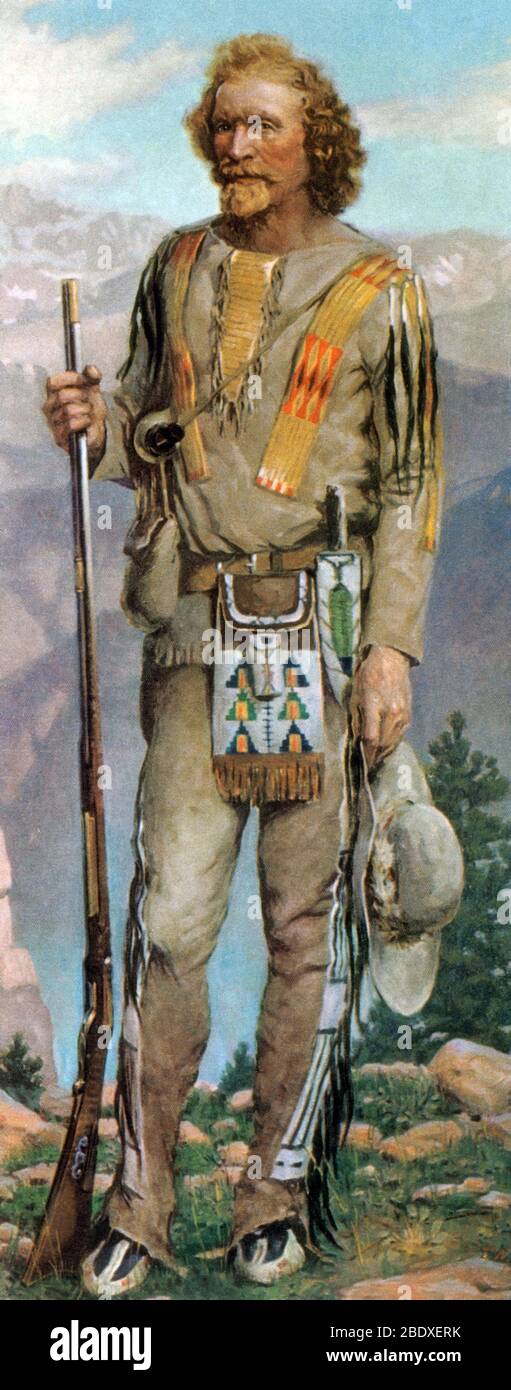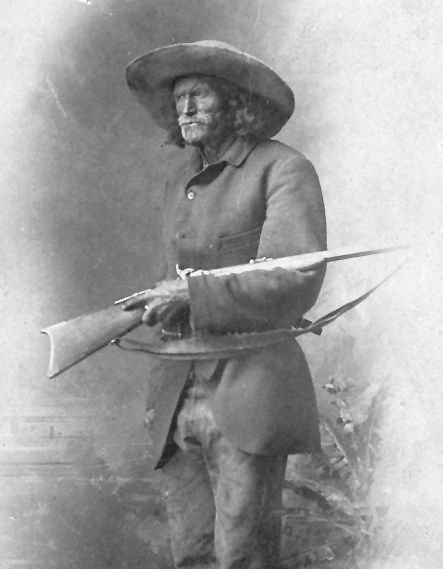
Jim Baker: The Unsung Echo of the American Frontier
America’s tapestry of legends is rich and varied, woven with the threads of explorers, pioneers, and figures whose lives embodied the raw spirit of a nascent nation. From the daring exploits of Daniel Boone to the larger-than-life persona of Davy Crockett, these icons are etched into the national consciousness. Yet, among these celebrated names, there exists a pantheon of lesser-known, equally compelling figures whose lives, though perhaps less mythologized in popular culture, offer a more authentic, unvarnished glimpse into the realities of the frontier. One such figure is Jim Baker, a frontiersman whose century-spanning life traversed the twilight of the fur trade, the frenzy of the gold rush, and the inexorable march of settlement, leaving behind a legacy that resonates as a genuine echo of the American wilderness.
Born in 1818 in Illinois, James "Jim" Baker was not destined for the quiet life of a farmer or town dweller. The call of the wild, the promise of adventure, and the allure of untold riches in beaver pelts pulled him westward in his early twenties. He joined the ranks of the intrepid mountain men, a rugged fraternity of trappers, hunters, and explorers who roamed the vast, untamed territories of the Rocky Mountains. This era, roughly from the 1820s to the the 1840s, was defined by the annual rendezvous – massive gatherings where trappers traded their season’s harvest for supplies, swapped stories, and engaged in boisterous revelry. It was here, amidst the towering peaks and roaring rivers, that Baker honed the skills that would define his extraordinary life: tracking, trapping, hunting, survival, and a profound understanding of the land and its indigenous inhabitants.
Baker’s apprenticeship was rigorous. He learned from the best, rubbing shoulders with legends like Jim Bridger and Kit Carson. His keen intellect and adaptability allowed him to quickly master the myriad challenges of mountain life. He became fluent in several Native American languages, including those of the Ute and Shoshone, fostering relationships that were often critical for survival and trade. Unlike some of his contemporaries who saw Native Americans solely as adversaries, Baker lived among them for extended periods, adopting many of their customs and even marrying several Native American women, forging family ties that further cemented his connection to the land and its original peoples. This deep cultural immersion provided him with an unparalleled understanding of the complex socio-political landscape of the frontier, making him an invaluable asset as a guide and scout.

Indeed, Baker’s reputation for unwavering reliability and unmatched knowledge of the wilderness caught the attention of none other than John C. Frémont, the renowned explorer and mapmaker whose expeditions were instrumental in charting the American West. Baker served as a guide for Frémont, navigating treacherous terrain and hostile encounters with a steady hand and an uncanny sense of direction. Frémont, in his writings, acknowledged the invaluable contributions of such frontiersmen, noting their "perfect familiarity with the country and its resources," a testament to the practical, hard-won wisdom that men like Baker possessed. It was through these expeditions that Baker’s name became associated with the grand narrative of American exploration, even if his individual exploits often remained in the shadow of the more celebrated figures.
However, the golden age of the mountain man was fleeting. By the 1850s, the demand for beaver pelts waned as silk hats replaced beaver felt as the fashion de rigueur. The rendezvous faded into memory, and the vast wilderness that had once been the sole domain of trappers and Native American tribes began to shrink under the relentless tide of westward expansion. The discovery of gold in California and later in Colorado unleashed a new wave of migration – prospectors, settlers, and speculators pouring into territories that had once seemed boundless. This shift forced many mountain men to adapt or perish. Some, like Kit Carson, found new roles as military scouts or Indian agents. Others, unable to reconcile with the encroaching civilization, retreated further into the dwindling wilderness.
Jim Baker chose a path of adaptation, but on his own terms. He was too deeply ingrained in the rhythm of the wild to fully embrace settled life, yet pragmatic enough to understand the changing times. He transitioned from trapper to guide for wagon trains, then to a scout for the U.S. Army during various conflicts with Native American tribes, a role that often put him in a morally complex position, caught between his adopted families and the demands of the encroaching white society. His skills in tracking and wilderness navigation were still highly sought after, but the context had changed dramatically.
As the frontier continued to close, Baker sought a measure of peace and permanence. In the 1870s, he settled near the confluence of the Little Snake River and the Vermillion Creek, straddling the present-day border of Wyoming and Colorado. Here, he built his famous stockade cabin, a formidable structure designed for defense against both Native American raids and encroaching outlaws. This cabin, a testament to his enduring independence, became a symbol of the last bastion of the mountain man spirit. It was a place where Baker, now an elder statesman of the frontier, could live out his days largely on his own terms, still hunting, trapping, and ranching a small herd of cattle.
Baker’s later years cemented his legend as the "Last Mountain Man." He was a living relic, a bridge between two eras. Visitors to his isolated homestead often described a gruff, laconic old man, wary of strangers but possessing an undeniable dignity and an encyclopedic knowledge of the land. He was known for his blunt honesty and his disdain for the perceived effeminacy of urban life. He fiercely protected his privacy and his "elbow room," a common frontier sentiment that embodied the desire for space and self-reliance. One anecdote, often attributed to him, perfectly encapsulates his character: when asked why he lived so far from civilization, he reputedly grumbled, "I’ve got elbow room!" This simple phrase, whether historically accurate or apocryphal, perfectly captures the essence of Jim Baker’s desire for untrammeled freedom.
His appearance was as rugged as his spirit: long, flowing white hair, piercing blue eyes that had seen a century of wilderness, and a body hardened by a lifetime of physical exertion. He was a repository of stories, a living archive of a bygone era. People sought him out not just for his practical advice on the wilderness, but for a glimpse into a world that was rapidly fading. He represented the quintessential American ideal of rugged individualism, a man who answered to no one but himself and the dictates of the unforgiving landscape.
Jim Baker passed away in 1898, just two years before the turn of the century, bringing to a close a life that spanned nearly the entire epic of the American frontier. He witnessed the rise and fall of the fur trade, the seismic shifts of the gold rushes, the Indian Wars, and the gradual fencing off of the vast public domain into ranches and farms. His death marked not just the end of an individual life, but symbolically, the end of an era – the era of the truly untamed American West.
While his name might not resonate with the same immediate recognition as Boone or Crockett, Jim Baker’s legend is perhaps more profound in its authenticity. He was not merely a hero of myth-making, but a survivor, an adapter, a witness to history, and a testament to the enduring human spirit in the face of immense challenge and change. His life reminds us that the American frontier was not just a stage for grand narratives, but a harsh, beautiful reality lived day by day by individuals like Baker, whose resilience, knowledge, and fierce independence forged the very identity of a nation. He stands as an unsung echo, a whisper from the deep canyons and towering peaks, reminding us of the raw, untamed heart of America. His legacy endures not in monuments or ballads, but in the silent strength of the mountains he called home, a true legend of the American West.



